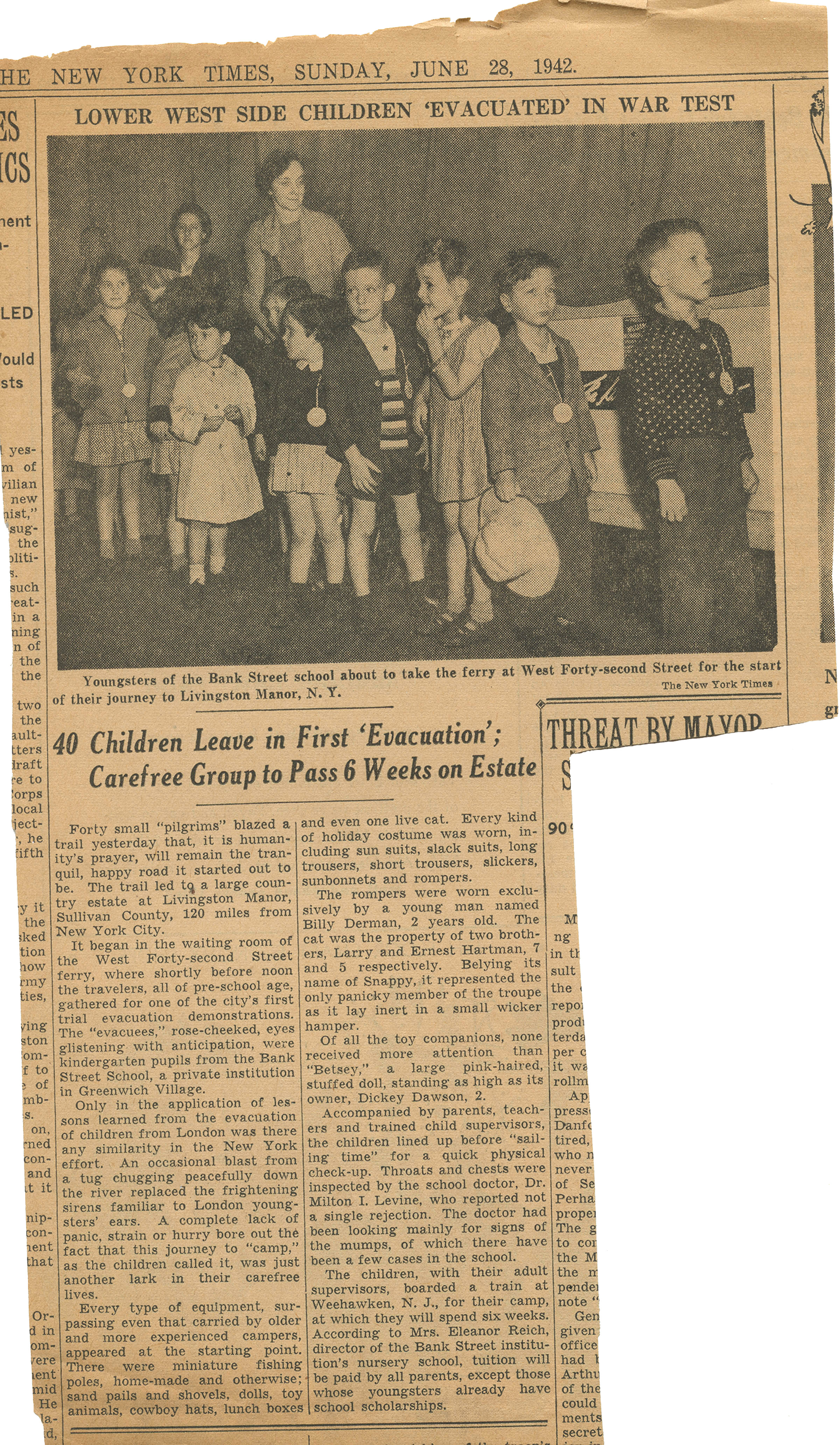
Paul Horwitz, senior scientist, got his start in research earlier than most — when he was three! We’ve enjoyed his stories for many years. This one was too good not to share. One day at lunch we decided to follow up on his memories and dig a little deeper. We contacted Lindsey Wyckoff at Bank Street College, who sent us this story from their archives. Here is Paul’s story:
It’s July 1942. Hitler’s armies have conquered most of continental Europe and are about to unleash their fury on the Russian city of Stalingrad. England has survived the “blitz” but thousands of frantic British parents have allowed their children to be evacuated, some as far away as Canada. In New York the Bank Street Nursery School, under the auspices of the Office of Civilian Defense, has embarked on an ambitious experiment. Forty-five preschool children, ages two to five, will be “evacuated” for six weeks to Lake Waneta in upstate New York in order to evaluate whether the trauma of being separated from their parents outweighs the risk of exposing them to possible attack.
I was one of those children.
I was three and a half, far too young to understand what was happening to me, much less why, but the weeks I spent at “camp” that year are among my earliest memories. And the memories, by and large, are good ones.
I remember being introduced to a special kind of photosensitive paper that could record the silhouettes of objects placed upon it. I remember kicking my legs in shallow water, thinking guiltily that I had tricked my parents into believing I could swim. I have a hazy memory of a newsreel crew with a huge camera that moved back and forth on wheels.
I have no recollection of the battery of psychological tests that must have been run on me, though I do remember my answer to one question: in a race would you rather be first or last? (I chose last, on the basis that that way I wouldn’t always be looking behind me to see whether someone was catching up.)
I have since learned that the experiment was a success: given proper care, including cuddle time as well as meals, young children proved unexpectedly resilient. So no permanent damage was done, though I very much doubt that one could attempt this kind of thing today.
In the end, as we know now, no evacuation of New York or any other American city was deemed necessary. The broad Atlantic and the absence of aircraft carriers from the German fleet offered protection enough in that long ago time. But today, as we learn to cope with sporadic and unpredictable violence resulting from a protracted “war on terror,” it is perhaps instructive to remember that we have survived much worse.
2 thoughts on “Early start in educational research”
Comments are closed.
As always an interesting story from Paul. And it’s so reassuring that no permanent damage was done!
Hmmmm….Very nicely done, Paul. But how do we know for sure that little Paul escaped that scientific experiment unaffected? Maybe that explains a LOT of why Paul is the sensitive, intelligent, highly observant and conversant “child” we see today! LOL